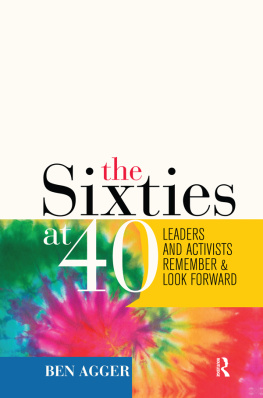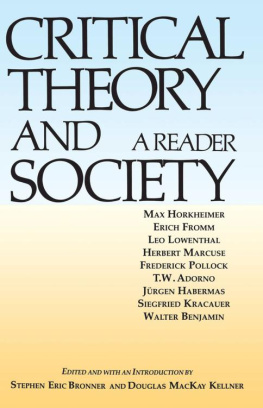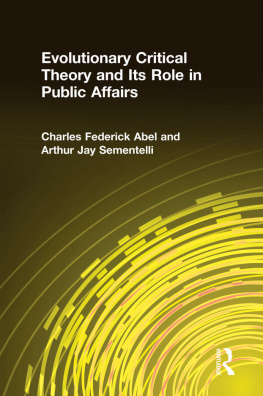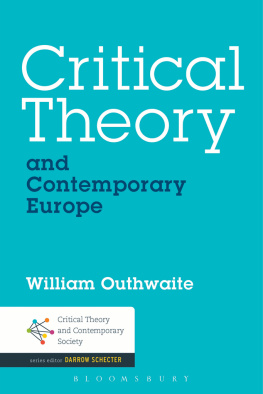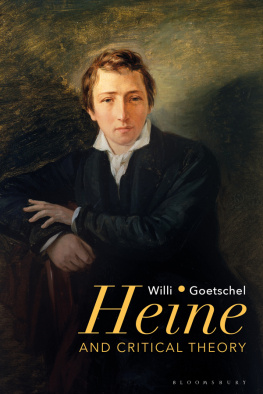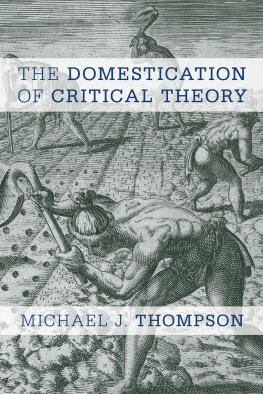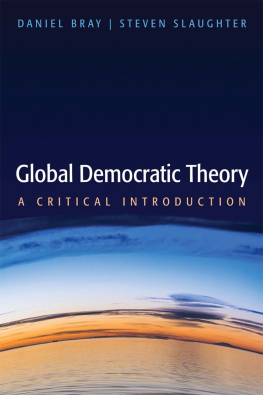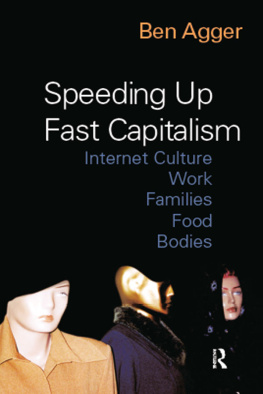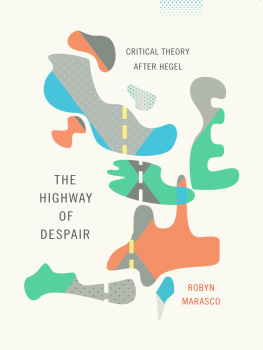
A Critical Theory of Public Life
Critical Perspectives on Literacy and Education
Series Editor: Allan Luke
James Cook University of North Queensland
Australia
Literacy remains a contentious and polarized educational, media and political issue. What has emerged from the continuing debate is a recognition by many critical researchers and theorists that literacy in education is allied closely with matters of language and culture, ideology and discourse, knowledge and power.
This new series of monographs and anthologies draws together critical, cross-disciplinary work on language and literacy in a format accessible to researchers and students of education. Its aim is to provide competing discourses and alternative practices to the extant technical literature which offers state of the art insights and how to formulae for the achievement of literacy narrowly conceived as individual, psychological skills. Drawing perspectives variously from critical social theory and cultural studies, post-structuralism and feminisms, sociolinguistics and the ethnography of communication, social history and comparative education, the contributors to this series begin a critical interrogation of taken-for-granted assumptions which have guided educational policy, research and practice.
Social Linguistics and Literacies:
Ideology in Discourses
James Paul Gee, University of Southern California, USA
With Literacy and Justice for All:
Rethinking the Social in Language and Education
Carole Edelsky, Arizona State University, USA
A Critical Theory of Public Life:
Knowledge, Discourse and Politics in an Age of Decline
Ben Agger, State University of New York, Buffalo, USA
Forthcoming Titles
Knowledge, Culture and Power:
International Perspectives on Literacy as Policy and Practice
Edited by Anthony R. Welch and Peter Freebody, The University of New England, Australia
Discourse, Gender and School Literacy:
Studies in the Social Organization of Classroom Knowledge
Carolyn Baker, The University of New England, Australia
Word Perfect:
Prospects for Literacy in the Computer Age
Myron Tuman, The University of Alabama, USA
The Insistence of the Letter:
Literacy Studies and Curriculum Theorizing
Edited by Bill Green, Deakin University, Australia
Texts of Desire:
Essays on Fiction, Femininity and Schooling
Edited by Linda K. Christian-Smith, The University of Wisconsin-Oshkosh, USA
Writing Science: Literacy and Discursive Power
MAK Halliday and JR Martin, University of Sydney, Australia
Morning News: Lessons in Learning How to Learn in School
Francis Christie, Northern Territory University, Australia
Television Literacy: Text and Context
David Buckingham, University of London, UK
Critical Perspectives on Literacy and Education
A Critical Theory of Public Life:
Knowledge, Discourse and Politics in an Age of Decline
Ben Agger
First published 1991
By RoutledgeFalmer
Published 2013 by Routledge
2 Park Square, Milton Park, Abingdon, Oxon OX14 4RN
711 Third Avenue, New York, NY, 10017, USA
Routledge is an imprint of the Taylor & Francis Group, an informa business
1991 Ben Agger
All rights reserved. No part of this publication may be reproduced, stored in a retrieval system, or transmitted, in any form or by any means, electronic, mechanical, photocopying, recording or otherwise, without permission in writing from the Publisher.
A catalogue record for this book is available from the British Library
Library of Congress Cataloguing in Publication Data are available on request
ISBN 13: 978-1-850-00967-2 (pbk)
Typeset in 11/11.5pt Bembo
by Graphicraft Typesetters Ltd., Hong Kong
Contents
For Beth Anne..
again and again!
I am extremely grateful to Allan Luke for including this book in his Falmer series on literacy as well as for helping me pull these chapters together into a coherent book. He challenged me to rethink (and rewrite) a variety of my theoretical positions in ways that helped strengthen my arguments.
I am indebted to Jacinta Evans at Falmer for her superb editorial help with this project. She is a model editor: patient, rigorous, sympathetic.
Kate Hausbeck helped check the proofs with her usual skill. Kate Miller did a fine job of copyediting the manuscript, helping turn critical theory into plain English.
In addition to Allan Lukes careful reading of the entire manuscript, the following people offered very helpful readings of particular chapters:
Richard Scott, Laurel Richardson, Norman Denzin, Douglas Kellner, Ray Morrow, Tim Luke, Larry Hazelrigg, John ONeill, Mark Gottdiener, Beth Anne Shelton, Stanley Diamond, Mark Kann, Russell Jacoby, Robert Maniquis, Christine Gailey, John Forester, Allan Rachlin, Philip Wexler, Ted Waagenar, Lionel S. Lewis (and other anonymous reviewers). Thank you one and all!
Ben Agger
Buffalo, NY
December 1990
Critical Theory, Poststructuralism, Postmodernism is an amended version of a paper published in the Annual Review of Sociology and is reproduced, with permission, from the Annual Review of Sociology, volume 17, 1991 published by Annual Reviews Incorporated. Marxism, Feminism, Deconstruction: Writing the Social is a revised version of a paper which first appeared in Dialectical Anthropology and is reproduced here with permission from the University Presses of Florida. Reading/Writing Otherwise: Radical Hermeneutics as Critical Theory was first published in Agger, B., Fast Capitalism, University of Illinois Press and is reproduced with kind permission from Richard Wentworth. Do Books Write Authors? Textbooks and Disciplinary Hegemony is a revised version of an article which appeared in Teaching Sociology, 1989, volume 17, pp. 36569. It is reproduced here with kind permission from Theodor Wagenaar. The Dialectic of Deindustrialization was first published in Forester, J. (Ed.) (1985) Critical Theory and Public Life, Cambridge, MA, MIT Press, pp. 321 and is reproduced with permission from MIT Press. The Dialectic of Desire first appeared in Dialectical Anthropology, 1983, volume 8, pp. 7586 and is reproduced with kind permission from Stanley Diamond.
The first volume of this series, James Gees Social Linguistics and Literacies (1991), offers a reworking of sociolinguistics in light of contemporary theories of ideology and discourse. Carole Edelskys With Literacy and Justice for All (1991) poses the question of the viability of a holistic, critical approach to literacy in light of postmodern crises in social science, politics and culture. Works in progress examine the kinds of literate practices propagated by new modes of information, scientific discourse and literacy teaching, the place of popular texts of desire in the educational construction of gender, literacy as policy and practice in non-Western national contexts, and talk and gender in literacy lessons.
These monographs, anthologies and textbooks offer alternative, cross-disciplinary perspectives to the academic and professional literature that defines literacy in terms of neutral, psychological skills or processes internal to the literate person. Several themes traverse these volumes: 1) a view that literacy is above all a social practice intricately tied to power and sociocultural reproduction in the contemporary nation state; and relatedly, 2) a recognition of the need for critique and reconfiguration of conventional disciplinary agendas for dealing with texts, representation and literacies in institutions.




